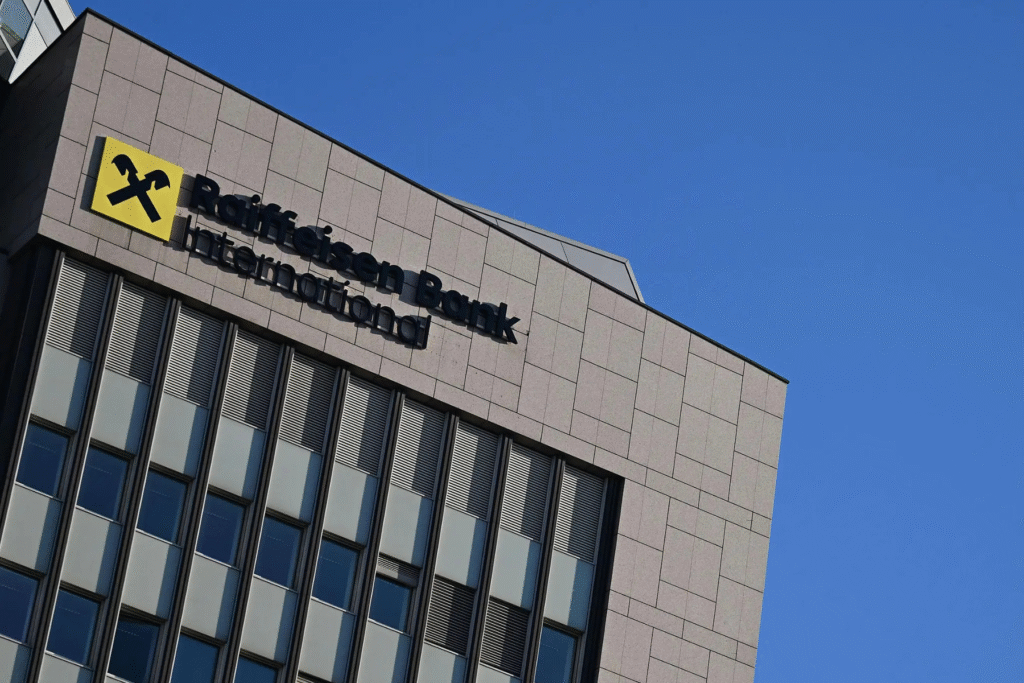
Raiffeisen Bank International (RBI) increased its profit and revenue (excluding Russia and Belarus) in the first nine months of fiscal year 2025. The group’s net profit rose by 21.2 percent to 1.03 billion euros. In Russia, however, the bank continues to scale down its operations — its Russian subsidiary alone recorded a loss of 118 million euros after three quarters.
CEO Johann Strobl expressed satisfaction with the results. “Given the interest rate cuts and the challenging macroeconomic environment, we achieved a very good result,” the CEO said in a statement. Despite lower interest rates, net interest income after three quarters rose by 0.5 percent to 3.13 billion euros. Net fee and commission income increased by a more substantial 9.3 percent to 1.47 billion euros.
Customer loans rose to 98.48 billion euros, up from 95.36 billion euros at the end of 2024. Customer deposits grew from 108.21 billion euros to 115.13 billion euros. Retail deposits increased especially in the Czech Republic and Romania, the bank said, while loan growth was mainly driven by mortgages and personal loans.
Risk costs also developed favorably, according to the bank. They amounted to 120 million euros by the end of September 2025 — roughly 23 percent less than in the same period of the previous year. The NPE ratio (non-performing exposures) fell from 2.1 percent at the end of 2024 to 1.7 percent.
Russian business continues to shrink
In Russia, the bank’s operations are declining further. Since the start of the war, the loan portfolio has been reduced from 13.7 billion euros to 4.5 billion euros. Deposit volume has dropped by 38 percent since then, RBI reported. The Russian subsidiary is now only the fifth-largest RBI unit by loan volume. The bank is allowing its Russian loan portfolio to wind down and is discouraging Russian customers by paying no interest on deposits.
After nine months, the Russian unit recorded a loss of 118 million euros, compared with a profit of 1.11 billion euros in the same period last year. This was mainly due to a Russian court ruling ordering Raiffeisenbank Russia to pay about 2 billion euros in damages to Strabag shareholder Rasperia Trading Limited.
Rasperia sued Raiffeisen Russia only because of its corporate relationship with Strabag shareholder Raiffeisen-Holding Niederösterreich-Wien. The latter owns Raiffeisenlandesbank Niederösterreich-Wien, which in turn holds a 25 percent stake in RBI, the parent company of Raiffeisenbank Russia.
Raiffeisen intends to recover the money. The Austrian government recently attempted to help by seeking an exemption within the EU’s sanctions packages against Russia. The goal was to allow the transfer to RBI of roughly 2 billion euros worth of Strabag shares currently frozen under sanctions and held by Rasperia Trading Limited, a Russian firm. However, Austria’s proposal failed when the 19th EU sanctions package was adopted — no other EU member state supported the move. Chancellor Christian Stocker (ÖVP) said after last Friday’s EU summit that he hopes to find a solution “by the next round.”
As another option, the bank could sue Rasperia in Austria and seek to seize the Russian plaintiff’s Austrian assets, though such a lawsuit has not yet been filed.
Outlook confirmed
The bank confirmed its full-year outlook. It continues to project net interest income of around 4.15 billion euros and net fee income of about 1.95 billion euros. Loan growth is still expected at 6 to 7 percent. The common equity tier 1 (CET1) ratio is projected at 15.2 percent, factoring in a “worst-case scenario” in which Raiffeisenbank Russia must be fully deconsolidated and all equity lost. The current ratio stands at 15.7 percent.

